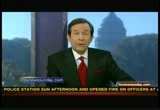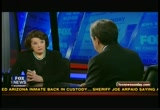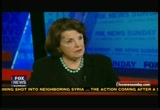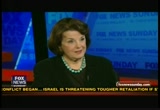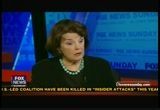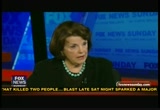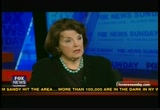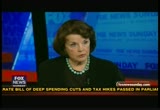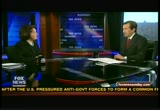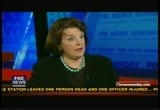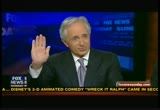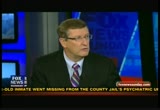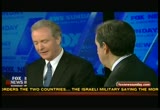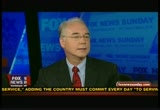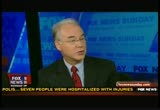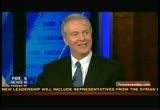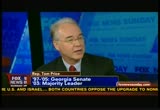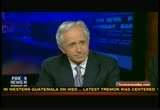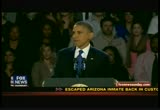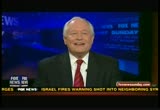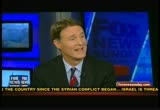tv FOX News Sunday With Chris Wallace FOX News November 12, 2012 2:00am-3:00am EST
2:00 am
of captioned by closed captioning services, inc >> chris: i'm chris wallace. a personal scandal forces c.i.a. director david petraeus to resign. we'll discuss the startling end to a brilliant career and look ahead to congressional investigation of terror attack in benghazi, with the chairman of the senate intelligence committee dianne feinstein. a "fox news sunday" exclusive. then the new year will bring higher taxes and huge spending cuts. unless a divided washington cuts a deal. we'll talk with four congressional leaders who will play big roles in trying to find a compromise.
2:01 am
republican senator bob corker and congressman tom price. democratic senator kent conrad and congressman chris van hollen. plus, president obama looks ahead to a second-term while republicans look to regroup. we'll ask our sunday panel about what both sides need to do moving forward. all right now. on "fox news sunday." and hello again from fox news in washington on veterans day. when we honor the military for their service to our nation. we begin today with a dramatic fall from grace of one of the most respected military men of this generation. c.i.a. director and retired four-star general david petraeus stepped down friday after admitting to an extramarital affair. joining us now to discuss that and upcoming hearings on the deadlyer thor attack in libya is the chairman of the senate intelligence committee, dianne
2:02 am
feinstein. welcome back to "fox news sunday." >> thank you, chris. >> chris: in a statement you said you understand petraeus' decision to resign but you wish president obama had not accepted that. after more revelations this weekend, do you still feel that way? >> i talked to dave petraeus twice on friday. he said to me you know i have done an egregiously dishonorable thing and i need now to do the honorable thing. when i thought about it and for me it's a heard break. i mean, i am very -- this is a truly bright man, a credible person, a great leader, and could have really been a super transitional figure for the c.i.a. this is very, very hard. i do think he did the right thing. >> chris: so now you accept that -- >> when you realize additional complications, which i did not at the time i spoke to him. i think he did the right
2:03 am
thing. i think the president really had no choice but to accept the resignation. >> chris: let me ask you about the additional complications, because it now turns out the way the f.b.i. found out about that is because paula broadwell, the mistress, was sending threatening e-mails to another woman, whom she regarded as a threat to her relationship with petraeus. what do you know about that relationship between the other woman and petraeus? >> well, there is an f.b.i. investigation. that is continuing. i read "the post" and "the times" this morning and it's pretty well laid out, i think. i just hate to discuss it except to say there are a number of things that one has to consider, the first of which was there any kind of national security breach? to date, there was not. and the f.b.i. briefed me now. i actually wish we had been briefed a little bit earlier.
2:04 am
so that the full intelligence committee, one of the things that i tried to do, chris, is bring both sides together. so my vice chairman chambliss and i share material and work together. that is a very important concept. with neither of us knowing ahead of time, all of this comes as a big shock. and we are very much able to keep things in a classified setting. at least if you know, you can begin to think and to plan. of course, we have not had that opportunity. we begin hearings on thursday. this is an inquiry, not a single hearing. there will be aspects of it and, you know, obviously general petraeus -- excuse me, director petraeus is going to be part of the hearing process. >> chris: i have to ask you directly, do you believe, have you been told that this other woman was also in a
2:05 am
relationship, an affair, with general petraeus? >> no. i have not been told there was an affair. what i have been told is that there was somebody else that he knew and was close to. an that mrs. broadwell sent these threatening e-mails to her. and she was frightened. she went to the f.b.i. oh, i can't believe it, but that is what it is. >> chris: let's talk about the f.b.i. by law, they are supposed to inform your committee of any development of significance to the intelligence community. this clearly passed that threshold. is it true that you received no advanced word of this? are you going to investigate the f.b.i.'s decision not to tell you abouten investigation that had been going on for at least weeks? >> the answer is question and question. we receased no advance notice. it was a lightning bolt.
2:06 am
the way i found out, i came back to washington thursday night. friday morning, the staff director told me there were a number of calls from press about this. i called david petraeus. i had an appointment with him at 3:00 that afternoon. that was canceled. when the gains came up, i took action myself to find out. then informed my vice chai chairman. i talked to director twice. this is very hard stuff. >> chris: are you going to investigate why the f.b.i. didn't notify you before? >> yes, absolutely. this is something that could have had an effect on national security. i think we should have been told. there is a way to do it.
2:07 am
just to inform the chair and the vice chairman of both committees. this has happened before, not with precise same things but none of the four of us have ever breached that confidentiality. >> chris: let me ask you, and you raise the hearings and we'll get into that in a moment. petraeus was supposed to testify in a closed hearing that your committee will hold thursday about the attack on benghazi. now because petraeus stepped down, his deputy, now acting director replacement, mike morrell is going to testify in his place. one, are you going to insist on hearing from petraeus at some point? do you think there is a link between his resignation and events in benghazi? >> in the events in benghazi and his resignation, absolutely not. if you really think this out, everybody will come to that same conclusion. with respect calling director petraeus or former director
2:08 am
petraeus before the committee, that will be a committee decision. the hearing began with director of national intelligence and mike morrell who is now acting director of the c.i.a. matt olson of the counterterrorism center. >> i'll ask about the hearing in a second. do you think you need to hear from petraeus? >> we may well. and we may well ask. i think that is up to the committee. i think we should have the first hearing which is the way they want to set it up. committee will make a decision. >> chris: let's turn to the hearing. it's not a hearing. it's an inquiry. what is your biggest question, your biggest concerns as you begin this inquiry to what happened in benghazi? >> my biggest concern is there are literally hundreds of threat warnings in the material that has been accumulated. there were five attacks during year. one prior attack on the
2:09 am
consulate, itself. the question i have is: you know, why wasn't something done about it? there are many options. one is to recall the ambassador, sit down with him, have his personal assessment of security, see what you the k do and do it. the second is to immediately beef things up in a major way. changes were made, but the changes were not major. what is clear to me, and i went to the memorial service in san francisco for chris stevens. the libyan ambassador to the united states spoke. twice during his remarks he said, "i am so sorry that we could not protect your consulate." which is a total admission that the libyan got was incapable of protecting our facilities. this raises a major question for the future. we have 285 embassies and consulates oaf th over the world
2:10 am
threats pour in. what do we do? >> chris: let me ask you if i may, senator. excuse me. directly. do you think the u.s. officials in washington had enough information beforehand, enough of the warnings to beef up security before the attack ever happened? >> well, that is the purpose of our inquiry. that decision will be made by the community. i have not had an opportunity yet to go through what are the thousands of pages. and i, you know, i want to do that. i want other members to do that. i don't want to jump to any conclusion. but it would appear to me -- and this is just me -- that the five prior incidents in the year, which aren't intelligence. they're not threats. they are actual attacks. on the british ambassador, on our consulate once before, on a number of other things. on the united states missions. now, that to me is sufficient intelligence to make a decision.
2:11 am
so we want to see what the extenuating circumstances are. that the security wasn't beefed up by us. if it couldn't be beefed up by the libyans, or we didn't close down the consulate. >> chris: do you think -- second question -- there was enough time in the seven hours between the first attack and the consulate and the second attack at 5:00 the following morning on the c.i.a. annex that there was enough time deploy u.s. forces to protect the americans there? >> my understanding is there was not. i can't be dispositive right enology before we have the hearings and really hear the testimony on just that question. it is a pertinent question. it's an important question. it must be answered. >> chris: one more question. there were also the changing stories after the attack. changing stories from the administration officials about what actually happened. just take a look. >> do you believe that this was a terrorist attack? >> well, it's too early to
2:12 am
know exactly how this came about. >> what happened initially was that it was a spontaneous reaction to what had just transpired in cairo. as a consequence of the video. >> yes, they were killed in the course of a terrorist attack on our embassy. >> the natural protests that arose because of the outrage over the video were used as an excuse by extremists to see if they can also directly harm u.s. interests. >> chris: i'm asking you personally, not as the committee as a whole, how do you explain these shifting stories? and the president continuing to talk about the video after the head of the counterterrorism center said that it was a terror attack. and do you think, do you think it had anything to do with politics in the middle of a presidential campaign? >> i don't think it had anything to do with politics. i do think it had something to do with our assessment. my view is simple and very
2:13 am
direct. the minute you know mortars are used, or rpgs are used, it's either a terrorist attack or a military attack. those are the only two things it could be. what is a terrorist? a terrorist isn't necessarily all one thing. a terrorist uses the attack as a vehicle. we all know that now. therefore, it's pretty clear the minute mortars show up, the minute rpgs show up, you have a terrorist attack. >> chris: so why was the president a week later talking about the video? especially when it turns out and they knew in real-time it was never protest to begin with? >> these things can be assessed into oblivion, too. i go by prior incidents. prior incidents give me a good assessment of whether there is a high likelihood so the assessment can be with confidence. and i think that assessment could have been made earlier
2:14 am
on with confidence. having said that, i have not seen the hundreds of threat warnings. i want to go through them and look at them. this come down to our purpose. we have been proud over the time of 9/11, thestow pipes have -- the stove pipes have been down and the intelligence is better analyzed, red teamed and passed on. we have a national security branch of the f.b.i. we have a counterterrorism center. all of the above. now the question comes, how does that all really work? this is a live incident to show something went wrong in the assessment. i want to see exactly what it is. i don't want to be premature. i don't think you want me to be premature either, chris. >> chris: no, i don't. >> good. >> chris: i want you to tell us what you know and that is it. senator feinstein, thank you. thank you as always for coming
2:15 am
in. when you know more, please come back and we'll follow your investigation in to libya every step of the way. thank you, senator. pleasure to talk to you. >> my pleasure. thank you. >> chris: as we draw ever closer to the fiscal cliff, higher taxes and deep spending cuts we will ask four key members of congress if they
2:18 am
>> chris: we are now just 51 day aceway from fiscal cliff when $644 billion in tax hikes and spending cuts will kick in next year unless the president and congress make a deal. we invited four congressional leaders who will be at the center of any compromise to discuss what is possible. and what isn't. senators bob corker and kent conrad, and congressmanman tom price and chris van hollen.
2:19 am
gentlemen, welcome back to "fox news sunday." good to have you here. senator corker, let me start with you. how real is the cliff? can washington figure out a way in 51 days to cut trillions in from the deficit? or are you going to get an extension and dick can down the road? >> i hope we don't kick the can down the road. we know what the issues are, chris. we have had two dry runs already. nothing has changed. i hope at least we'll go substantially down the road toward solving the problem. people are conflating the fiscal cliff with fiscal reform. i know kept and i and chris and others, tom, have been working for a long time on fiscal reform. what i think we don't need to look our eye on is the fact that that is what needs to beed. be solved. i'm hopeful. i think there is room. i said from day one the key to solving this is medicare reform. if we can agree to medicare reform, i think the other
2:20 am
pieces will fall in place. >> senator conrad there is some talk among democrats about going over the cliff. letting all the tax hikes kick in. letting all the spending cuts kick in. and blame it on the republica republicans. >> well, i don't know where you are hearing that. you certainly don't hear it from me. i have spent five years trying to put together a pack knowledge a bipartisan way. to get us back on a sound fiscal course. and i think it's very clear that we have a near-term problem. we've got to make sure that we are doing everything we can to strengthen economic growth. and we have a longer-term problem, that is unsustainable fiscal course for the nation. that requires revenue reform, which is bob corker talking about fundamental reform. we absolutely need it in the entitlement programs. medicare, social security. we need it in the revenue side of the equation. i should haste on the say the social security peace i don't think should be part of a deficit reduction package. but we do need to address
2:21 am
social security because it gets headed for insolvency as well. >> chris: let's talk about taxes that got most of the attention. congressman van hollen, john boehner offered a compromise this week where he said yes, i am willing to put more revenue on the table but through closing deductions, ending loopholes, not through raising rates. can you accept a compromise as part of this whole deal that doesn't raise the bush tax rate on the wealthy? >> well, here is the issue. how much revenue are we going to generate part of a balanced package? i take my lead on this from simpson-bowles and their framework. in their framework, they assume the amount of revenue as if you started tax reform from a 3% rate. that is part -- 39% rate. that's part of their built-in assumption. i am all for doing tax reform. the issue is from what starting point. the simpson-bowles starting point which assumes the revenue from 39% is the right way to go to get the mix that
2:22 am
they got in hitting their deficit reduction target. but look, if what the speaker boehner was saying is that he is truly willing to get what we consider congressional budget office revenue, we can work with one another. if what he is saying is what a lot of republicans used to say, which is we're just going to lower rates on the wealthy and that is going to somehow generate enough snore no. he was talking about closing loopholes and deductions. >> but grover norquist doesn't think that -- >> chris: the -- >> let me be clear. the tone was good. the jury is still out on what the substance of what he said is. others may be able to clarify. he said something in an artful way. which different people heard differently. >> chris: i would ask you directly. yes or no. are you willing to accept more revenue if it doesn't mean that the bush tax cut has to be rescinded for the wealthy
2:23 am
and it rises from 35 to 39% if they make the math work? >> the issue is the math. the starting point should be going to clinton era rates and proceeding with tax reform as the speaker may have been talking about, if he was genuinely talking about eliminating re-knews to eliminating loopholes. as part of the effort -- >> chris: congressman price, the president made one offer. on friday. which is let's right now extend the bush tax cut rates for the 98% of the people that are making less than $250,000. he says i'll sign it right away. take a look. >> let's not wait. even as we are negotiating a broader deficit reduction package, let's extend the middle class tax cuts right now. i've got the pen. ready to sign the bill, right away. i'm ready to do it. >> now democrats say that you and i talk about republicans, won't accept that because you want to hold the tax cut for
2:24 am
the middle class hostage until you get what you want. >> what we want are real solutions. house republicans want real solutions. to us that means you have to have economic growth. a tax increase never created a new job in this country. so what we need is economic growth and vitality. get the economy rolling. get the jobs being created. that means yes more revenue -- >> chris: let me ask you this directly. would you accept the piecemeal let's just pass the tax -- extension of bush tax cut for the 98% of people under 250? >> it doesn't make any sense to us to raise taxes on job creators at the time of economic challenge. te ccasion is revenue and spending -- the occasion is revenue and spending. we can lower the rates, broaden the base. close the loopholes, as you discussed. put in place pro-growth policies and energy and healthcare and the regulatory policy. then address the spending. the spending that has to be addressed is medicare, medicaid and snore we'll get to spend --
2:25 am
>> chris: we'll get to spending in a second. boehner seemed to be saying i am going to close loopholes and use the revenue. not just growth, but use the re-knew from closing the loopholes to cut the deficit. are you accepting that or not? >> i think that is the formul formula. that is the way we reach agreement. you can close the loophole -- >> chris: it's not the growth. taking the money, tax expenditures through the loopholes and giving, using it as a deficit savings. >> as long as you close the loopholes and limit the deduction, limit credits. formula for a solution. >> real solution. >> chris: senator corker, you have a draft plan you have been circulating to a number of members in the senate. is there a deal here? >> i think there is a deal. the ying and yang of this is we know there has to be revenues. look, i haven't met a wealthy republican or democrat in tennessee that is not willing to contribute more. as long as they know we the problem.
2:26 am
the ying of revenue, we understand. i think there is a very good pro-growth way of putting that place, so you are getting revenues from people like me and other folks. that make above "x" dollars. but what you have to have tied to that is true entitlement reform. >> chris: we'll get to that. one last question and i promise we'll get to that. senator conrad is there basis of a deal here? no, it's not raising the bush tax rate but the tax reform, you close loopholes and will it work? >> it could. the reality is bowles-simpson i was a part of lowered the rates. but raised more revenue. it did it by closing off preferences, exclusions, deductions, and it equalized the capital gains and dividends with or tax rates -- with other tax rates. if you want to go where many of us think the tax code is unfair, you have people who are paying very close effective rate at the top rate of 35%. people are much, much
2:27 am
wealthier paying an effective rate of 13-14%. that is really unfair. how does it happen? it largely happens because there is a 20-point differential between capital gains and ordinary income. 15% per capital gains and dividends. 35% for ordinary income. that differential really i don't think is justified. >> chris: okay. let's get -- i know you are chomping on the bit to get to spending and entitlement reform that has to be part of a deal. congressman van hollen, a year ago august when boehner and obama were involved in the debt talks, grand bargain that blew up, the president put on the table raising the eligibility age for medicare and slowing the cost of living adjustment for social security. could you accept that? >> well, i have to look at the overall deal, chris. we have already made significant reforms medicare to achieve savings. there isn't complication on this issue, which is the
2:28 am
supreme court decision that said that some states don't have to cover people on medicaid. could leave lots of individuals in the age group vulnerable. so that is a major complicating factor as we move forward. i am willing to look at -- i think democrats, including the president are willing to look at everything. >> chris: major entitlement reform. >> everybody has a different mean og warmfront major entitlement reform." the affordable care act made significant changes in saving as part of the medicare program. during the last campaign, seriously, a lot of ads blasting democrats for what was some serious reform with respect to medicare. the difference is we looked for savings by changing what is in the program as opposed to saving to medicare transferring the cost to beneficiary. that is not the way to go. that voucher plan in my view. >> congressman price, it brings me to obamacare. speaker boehner was asked this week whether the republican drive to kill obamacare is
2:29 am
dead. here is what he said. >> it's pretty clear that the president was re-elected. obamacare is the law of the land. >> chris: question. do most house republicans, do you agree with speaker boehner that repeal of obamacare with this election, his re-election is dead? >> no. as a physician i can tell you the reason -- we're not opposed to the president's healthcare law because of the election. we're opposed because it's bad policy an bad for patients across this land. we absolutely must get a handle on the spending in this country. to do that, these be through medicare and medicaid reform and social security reform. all three of those programs under current law are destined for failure. we need fundamental reform to save and strengthen and secure the programs for generation and the future generations. that's what real solutions look like. >> chris: you lost the election. i guess you still have the majority in the house, but you lost the election on the presidential level. you are not going to kill obamacare for the next four
2:30 am
years. >> the election said the american people don't want unified government in washington. they want divided government. which means we have to get together and the remarkable channels that we have. they have to beed with real solutions. they can't be solved with things that don't sol tv problem. that's what we have been doing for years and years. that is not what the american people want. >> chris: go to the two senators to end this. i come away from this, yeah, there is a little -- but a lot of the same old arguments coming up. are we going to go over the cliff or not? >> no. >> chris: is that because you kick it down road or come to a solution? >> i don't think it's over the cliff. it would be a travty for our country, the reason we don't go over the cliff is we totally kick the can down the road. look, again, we know what the problems are. we have been through two dry runs, there is nothing new. let's make a huge, humung down payment on this problem. and then this will take years of work. i'm optimistic. >> chris: do you think that
2:31 am
there is a basis for a deal? >> i think there is the basis for the deal. i think finally democrats are willing to accept -- i don't mean this pejoratively -- but they know republicans are willing to put re-knews on the table if we can do in a pro-growth way. there is a way of doing that. you saw the "washington post" editorial this morning. laid out $750 billion. easy way of getting there. so there is a way of getting there on the revenue side. the real question is can we come to terms on the entitlement side? by the way, when you deal with entitlements, you really don't do anything that deals with the economy in the short-term. so it's a very best way, $27 trillion problem exists right now with medicare. unfunded liabilities. that is where the focus needs to be. we can get to the appropriate revenue mix if we do that. >> chris: senator conrad, you are a lame duck in the lame duck session. as your time act before you leave office, is there the basis for a deal here?
2:32 am
>> i believe there is. can't settle every detail. in the next few weeks. what you can do is agree on a frame wok agreement that sets out for the committee of jurisdiction how much they need to save. how much money needs to be raised. what we can also do is half a significant down payment. so the markets understand we're serious about this. what we could also do is have a backstop to zo if committee of jurisdiction did not perform there would be a consequence. >> chris: that is the fiscal cliff. cha that is what was supposed to happen here. >> the difference is the fiscal cliff was designed not happen. sequester across-the-board cut, $1.2 trillion defense, nondefense, designed to be so onerous nobody would accept it. we need to have is a back sup something that would be good policy. if the operating committee didn't act. >> chris: gentlemen, we have to leave it there. thank you for coming in. we'll be watching every step of the next 51 days. good luck. >> thank you. >> chris: up next, president obama prepares for four more
2:36 am
>> chris: i am looking forward to reaching out and working with leaders of both parties to meet the challenges, we can only solve together. reducing our deficit. reforming our tax code. fixing our immigration system. freeing ourselves from foreign oil. we've got more work to do. that was president obama and his victory speech promising to work with congress to get big thindowns in his sec term. it's time now for the sunday group. bill kristol of "the weekly standard." former senator evan bayh. syndicated radio talk show host laura ingraham.
2:37 am
and kirsten powers from daily beast website. what are the chances, realistic chances that the president could work with the republicans in a second term to solve the nation's problems? >> there is a very good chance he will pass major consequencial legislation in the second term. people won't like it that much. republicans will have to give in, much more than they think hecht won re-election. four presidents in the last century won more than 50% of the vote twice. roosevelit pains me to say that. the president is in good shape. republicans in the house will get some concessions and compromises but there will be a big budget deal next year, obama type deal more than pro-ryan deal. elections have consequences. >> chris: let me ask you about that, senator bayh. you heard congressman price say no, the country voted for divided government. they gave him a mandate and gave house republicans a mandate. moderate democrat yourself, what do you think is the key to how obama finds a way to
2:38 am
work with the g.o.p. and not just have two more years of gridlock? >> the president needs to move to the middle on fiscal issues, chris. i have been as pessimistic about anybody about gridlock in washington. but i'm modestly optimistic here. the president has more flexibility to stand up to his base on things like entitlement reform because he has been re-elected. the republicans, remember, mitch mcconnell said the top priority is make sure he is a one-term president. that's off the table. president will think of his legacy, want to get things done not just stake out positions. republicans need to worry about their brand and they lost moderate voters by 56%. all that suggests to me is the president says starting on the fiscal cliff, i'm willing to have two to three to one spending reductions versus the tax increases and a pro-growth tax reform package. you can get something done there. >> chris: laura, president's second terms are notoriously difficult. the fact is that although the president won re-election he didn't give as much of an
2:39 am
agenda for the second term during the campaign. what do you expect from him now that he no longer has to worry again about re-election? >> it's instructive to go to 2010 when the republicans had a great mid-term election. for republicans thinking that compromise is the answer for their political future, i would say think about what president obama did that actually ended up helping him win huge re-election victory. he decided not to moderate, not to compromise on any issue. he decided to double down on liberalism and he marketed in a few way and sold it to latinos an he found inflection points with women voters. he did it masterfully. with jim messina and the whole crew and re-election team. i think republicans and conservatives should figure out what they stand for. >> chris: wait. we'll talk about republicans -- >> i got that. but my answer is i think the president is going to go full steam ahead with his agenda. which is a socially progressive and very liberal agenda. i think we heard talk of compromise before, senator, of
2:40 am
healthcare, in the end it was my way or highway. he got it way he wanted it with very little support. i think you see it again. >> he did extend the bush tax cuts for a year. some compromise. >> he had to do that. even democrats urged him to do that. this time now with a second term without check he doubles down on the things he wants to do. i think he rams through an amnesty, immigration reform or whatever you call it. he goes further toward carbon tax. toward all sorts of other environmental regulations waiting. there is a huge regulatory frame wok about to be implemented. they have been holding up on it. this second term will be regulation hen. >> chris: let me bring in -- [ overtalk ] >> chris: bring in kirsten. >> you just laid out the two biggest things that will happen if obama has his way. immigration reform. the reason immigration reform will happen is because of what bill was saying, there are republicans that are chaisened and are going to work with him on it. otherwise it wouldn't happen. that will be a major accomplishment that he will try to get done.
2:41 am
right on the carbon tax as well. the climate change is major, i. >> chris: do you agree with laura he is not going to move to the center. he will double down on the liberal -- >> laura and i are never going to agree where the president is. i think he is fairly moderate. >> on what issue? what issue is he moderate on? >> he did compromise on the cax cut, for example, a major issue for democrats. >> one thing. >> men the healthcare legislation. the public option was taken off table. there are plenty of things he compromised on. >> chris: before the segment ends we want to talk about personnel. shocking resignation friday of david petraeusch i wandavid pet. i want your thoughts on that and the national security frame wok. clinton and panetta indicating they want to step down. what does that mean in terms of who will replace them and any possible change in obama policy? start with petraeus. >> a terrible end to a horrible week. it really was.
2:42 am
i don't know anything more than anyone else does. i think the president will face national security channels more quickly than people realize. we can put it on the back burner and personnel changes, secretary of state, secretary of defense and major decisions have to be made about syria. 30,000 people have been killed and we are losing influence by not having been more forward leaning. afghanistan. what is the president going to do? we have 68,000 troops there. the vice president said we are getting out in 2014, period. the administration policy is responsible in my view to get force there. advisory support there. but i don't know, support on the hill. if the republicans and the democrats think we're just in slow motion defeat in afghanistan. will people support sending more troops over there for two years? i'm not sure. he has to make a decision. does he just want out of the war or a stable outcome, where he needs to rally the country? he will have a busy foreign policy agenda in the first few months. >> chris: senator bayh you get the last word. petraeus in specific and
2:43 am
national security in second term agenda. >> the thing with david petraeus is tragic. she a patriotic american. he served his country well. it's most unfortunate. fortunately for us ve a deep bench in the national security foreign policy arena. you will see the president making a smooth transition there. the big issue in the next 12 months and it does involve the c.i.a. we are coming to the moment of truth for iran nuclear program. we face a fork in the road. there are no attractive alternatives and consequences depend tong path w -- depend tong path we take. he will compromise on legislation because he has to. he will be more progressive on the regulatory front because he can. >> chris: all right. >> on the petraeus thing, everyone says it's tragic. that is a given. but i think we have real questions here. we had the head of our intelligence in the entire country sending personal e-mails, after he was named c.i.a., to apparently the gal paula, after ron kesselr
2:44 am
report is she broke off the relationship and sending scores of e-mails. some report says thousands of e-mails from the personal account. and for eric holder, if he was the one who knew about this and he had to, to have not brought this to the attention of the president of the united states, i think questions have to be asked was it not brought to the president's attention? if that is the case, because of the political concerns? so the national curt and politics, which comes first? who cares who is president? our country is on the line. our security is on the line. and our c.i.a. director was apparently distracted enough by this, whatever this was, that he was sending scores of e-mails from a personal account. this is insanity. that is not just tragic. national concern. i think we have a congress who better investigate this. he has to get his tail on capitol hill. so tragic, yes, but outrage more important for the american people. >> laura is talking about is as confirm adds the other stories told about the women. >> the "washington post" and the "new york times" have pretty startling reporting today. >> i'm saying that people need to focus on what she is
2:45 am
talking about, which is that the e-mails were being sent. why aren't we talking about that? >> national security. it's about the national security concerns of the country. >> chris: all right. take a break here. you can tell it's going to be a very calm, relaxed second term. also here at "fox news sunday." when we come back after a tough election night for republicans, how does the g.o.p. come back? [ male announcer ] this is steve. he loves risk. but whether he's climbing everest, scuba diving the great barrier reef with sharks, or jumping into the market, he goes with people he trusts, which is why he trades with a company that doesn't nickel and dime him with hidden fees. so he can worry about other things, like what the market is doing and being ready, no matter what happens, which isn't rocket science. it's just common sense, from td ameritrade.
2:46 am
which isn't rocket science. ♪♪ you can help othersnk along the way. ♪ ♪ a portion of every bottle that they sell goes to fight ♪ ♪ breast cancer and i think that's swell. ♪ ♪ the more you take, the more they'll pay, ♪ ♪ so make them write a big check today. ♪ ♪ and if you're feeling a little slow, ♪ ♪ then 5-hour energy will help you go. ♪ ♪ so buy a bottle of pink lemonade and ♪ ♪ you can help fight breast cancer today. ♪
2:48 am
2:49 am
conversations are underway and. >> chris: that was house speaker john boehner acknowledging republicans have to retool after a disappointing election. we're back now with the panel. laura, how much trouble is the g.o.p. in? >> well, it depends how they react to this. the reaction to the election is let's dig in to our core principles and try to remake them, i think g.o.p. will lose even more seats in 2014. if it becomes a bidding war with the republicans and this group or that group, latinos or women, we will give you more stuff or do the amnesty plus, just to keep in line with panel plus, chris. amnesty plus won't work. republicans have to take a lesson from them. it hate to bring up reagan again but when goldwater got shellacked in '64, bill buckley and brent mosell senior got together and said we'll figure out how to sell the idea of the economic conservatism, con seventive framework to new voters.
2:50 am
they went to south and transformed mississippi and alabama and places where people never vote republican before. it took time and a lot of intraspec. intraspection. it wasn't them deciding our frame wok of ideas were wrong. it depends how they react. >> chris: kirsten, look at the exit polls that point out the challenge that republicans face. put it on the screen. republicans lost women by 11 points. hispanics by 44 points. young people by 23 points. what does that tell you? >> i think, well, first, losing women by 11 points isn't that new, because they lost them by 13 points last time. it's more interesting to look at the swing states where there is a much bigger swing. i think that if you want to look at something recently that happened that is similar to this, i'd say 2004. that is what this reminds me of this. reminds me of the day after democrats, you know, just absolutely falling apart, my gosh, we have a new
2:51 am
conservative majority, how are we going to change to attract them. there is a little bit of an overreaction on right except for immigration issue. i think because of demographics of the country that the republicans are going to have to figure out a way to attract hispanic vote. they have to do a better job with women. they could win an election still with that gender gap. it's just like i said if you look at states where obama administration bombarded women with messages, you saw much bigger gaps. >> chris: senator bayh, you know, it's interesting because i was thinking of 2004 as welch pendulum swings back and forth. after 2004 when bush had issues, and he still won, democrats were disspirited. obviously four years later they came roaring back. what do republicans need to do? >> two elections i'm thinking of, chris, number one, four years ago 2008 when some parts of the democratic party said this is a vote for a new
2:52 am
progressive era and left-leaning government. it turns out that wasn't quite the case. our party needs to be modest in the mandate we take away from it. we need togone from progressive center out. then 1988 from the republicans' perspective. democrat just lost two elections in a row to ronald reagan. what did we do? we nominated michael dukakis who is a fine man but a liberal from massachusetts. it took three beatings for to us realize you have to make common cause of moderates. that is the internal struggle the republican have to go through. true to principle on fiscal issues but if they embrace the far right social agenda it drives off the young people and alienate single women and suburban women and you see it in the numbers. >> senator, in your state of indiana -- >> can i say one last thing? if i could just get -- if i could say one last thing. please continue to nominate people for public office talking about women being rap rapeed.
2:53 am
>> won by only five points such a bad year. republicans should not kid themselves. republican lost 25 of 33 senate seats. republicans gained back the seats easy to gain back when no other new state at the presidential level. obama had a tough economy, glow gone from the first term, and all of that. republicans lost the national household by half a million votes. they held the house to redistricting and the democratic voters are more concentrated in some districts. it was a bad year. youth vote is worrisome. 60 to 40. i believe republicans have the right policies for future. i believe that the democrats are defending snore what do the rave dogs -- >> chris: so what do the republicans do? >> don't be more moderate or conservative. the answer is be fresh thinking, taken as moderate. some issues are more conservative. a huge middle class problem. the particular nominee the republicans had unfortunate in that respect four years after a huge wall street crisis. nominate someone from wall street. i think honest debate, fresh
2:54 am
thinking, leadership in the republican party and the leadership of the conservative movement has to pull back and let people float new ideas. have a serious debate. don't scream and yell when one person says it won't kill the country if we raise taxes a little bit on the millionaires. it won't. i don't understand why republicans don't take obama's offer to raise taxes for everyone below $250,000. make it $1 million. really? the republican party is going to fall on its sword to defend millionaires? half of whom voted democratic and half of whom live in hollywood? >> chris: let me ask you about this. this is the second reflection a row where it's fair to say the republicans squandered a really good chance to take over the senate. by all mathieu call rights -- mathematical rights they had ten seats to defend. democrats had 23. they nominated people strong enough to win in primaries but too out of the mainstream to win in general election. does the republican party have a tea party problem? >> no. it has as much republican establishment problem as tea party problem.
2:55 am
establishment nominees were nominated in florida and virginia and north dakota and montana. they lost. sitting congressmen who had the same stale establish. republican message. republicans have some tea party problem and some establishment problem. and basically they should get away from either me nighcally defending the establishment or the tea party. let the young people volunteer themselves. >> chris: 30 seconds. >> we have heard the tea party thing. we heard it in 2006. too far right it was called then. we have bad candidates. murdoch. terrible candidates. why did scott brown lose in massachusetts? why did we lose the north dakota senate seat? because of the tea party? if it weren't for the tea party folks and energy they brought to the fore, republicans would be in a disaster now. it doesn't mean they don't have to nominate great people. bill is right. but tea party, how many times do they get blamed for moderate losing seats? c'mon. >> chris: thank you, panel. see you next week. check out panel plus where the group will pick up with the discussion on the website.
2:56 am
2:59 am
>>. >> chris: before we go a follow-up to our interview last week with david axelrod. we asked him about a bet he made offering to shave his mustache if the president lost pennsylvania on election night. >> how secure are you on the must tasm? >> i guarantee the mustache will be there right there today. you know how serious a bet was. >> chris: axelrod said it attracted so much attention he had another idea. he and his wife have a daughter named lauren who has epilepsy and they are united in research in epilepsy. now, he has promised to shave his mustache if folks will donate one million in total by the end of this month.
187 Views
IN COLLECTIONS
Fox News Television Archive
Television Archive  Television Archive News Search Service
Television Archive News Search Service  The Chin Grimes TV News Archive
The Chin Grimes TV News Archive 
Uploaded by TV Archive on

 Live Music Archive
Live Music Archive Librivox Free Audio
Librivox Free Audio Metropolitan Museum
Metropolitan Museum Cleveland Museum of Art
Cleveland Museum of Art Internet Arcade
Internet Arcade Console Living Room
Console Living Room Books to Borrow
Books to Borrow Open Library
Open Library TV News
TV News Understanding 9/11
Understanding 9/11
